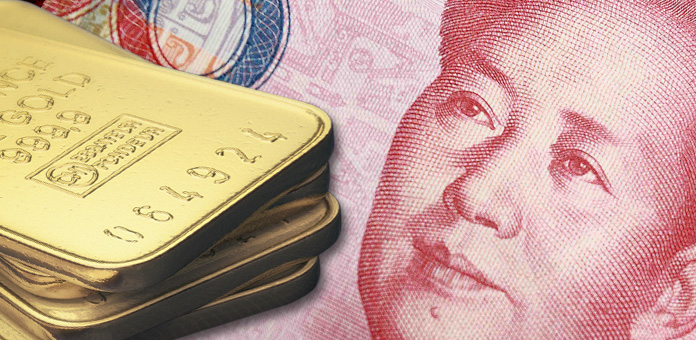
American tourists who visit another country know that they can use their dollars to buy just about anything instead of using the local currency. The dollar (as well as the Euro) is so popular and so valuable across the globe. China seeks to one day make the yuan as valuable as the dollar, but to do so they need quite a bit of gold to make the currency solvent. A new policy enacted by the Chinese government eases the import laws in order to move gold in and around the country more easily—just another tactic to gradually increase the influence of the yuan. 1
Chinese Gold Imports On the Rise
Given that China is the largest gold producer in the world, mining nearly as much gold ore as the next two countries combined, it may be surprising that the country is also one of the largest gold importers. 2 The Chinese desire for gold has been hamstrung, however, by laws that restrict the number of times an importer can bring gold into the country with a license. This new law allows gold importers to use one permit for up to twelve different customs checks, instead of one; this makes it faster and easier for gold importers to move gold into the country, thereby increasing China’s gold supply. China consumed nearly one thousand tons of gold in 2015, about forty billion dollars worth. This new permit system paves the way for even greater consumption.
Gold Trading License Restrictions Ease
Anyone who has one of these licenses now has much more flexibility. What’s more, it’s easier now to get a license than it was previously. Any bank member of the Shanghai Gold Exchange can apply for a license, while any producers with an annual output of ten tons will also have permission to apply for a trading license. 3 It’s not a nation-wide policy, however, but rather one that only applies to the six major trading centers of Shanghai, Beijing, Guangzhou, Nanjing, Qingdao, and Shenzhen. 4 Each of these mega-cities, with populations of well over ten million, has their own market indexes.
Big Plans to Position Yuan as Dominant Currency
The reason for the shift in this policy is quite clear: the Chinese desire for the yuan to be backed up by enough gold to make it a global reserve currency, thereby competing with the dollar. Recently, the Shanghai Gold Exchange was established with the intent of becoming one of the world’s foremost gold trading centers, rivaling the New York and London exchanges. Given that the London market clears nearly thirty billion dollars of gold per day, it’s a lofty goal. 5 The push away from the dollar and the Euro economies gives China extra clout as it tries to expand its financial influence into neighboring east Asian countries as well as developing markets in Africa and South America.
Additional Sources
2 – http://www.forbes.com/sites/kitconews/2014/06/17/worlds-largest-gold-producing-countries-china/#13a54ab47e61
3 – http://www.reuters.com/article/china-gold-idUSL4N0HQ15N20130930
4 – http://www.gata.org/node/16442
5 – http://www.forbes.com/sites/nathanlewis/2016/05/05/china-is-laying-the-foundation-for-the-next-world-gold-standard-system/#7984bc231803

